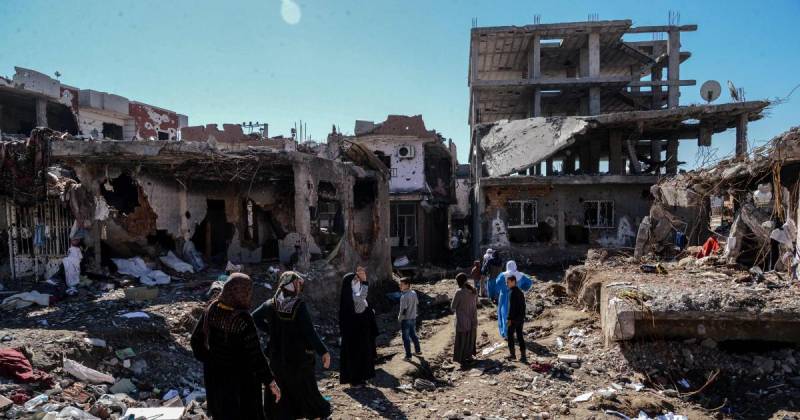Just over a year ago, a Cizre lawyer met a few of his friends at a cafe near the Tigris. They all agreed they could use a break from the stress and unrest in the city, which had recently seen violent clashes between security forces and Kurdish insurgents.
This led to the October 2017 launch of the Cizre Cycling and Nature Association, which organises weekly bike rides and urban improvement activities around this city of 100,000 people in Turkey’s southeast, and has welcomed dozens of locals to its ranks.
“It raised me from my ashes,” the lawyer and club co-founder said.
He sees cycling as a way to cope with the trauma of the curfews imposed on Cizre and surrounding areas by Turkish security forces in 2015 and 2016 during clashes with Kurdish rebels. As a result of the fighting, Cizre was largely demolished.
Starting in August 2015, the curfews were put in place in primarily Kurdish-populated towns and cities in Turkey’s southeast to fight Kurdish militias. The second curfew in Cizre lasted 79 days and ended in March 2016, during which time the district was levelled.
“I’ve had a dream of cycling since childhood, but my family said no from an image standpoint,” the lawyer explained. “It was not looked on too kindly for me as a lawyer to go to the courthouse on a bike. But this association and cycling have become a means to deal with my trauma. Society needed this too.”
The United Nations said between 355,000 and half a million people, most of them Kurdish, were displaced by the unrest. During the curfew, Cizre did not have enough food and water. The injured did not receive the medical care they needed.
Member of the Cizre club come from a broad spectrum, including academics, a former imam, municipal workers, lawyers, musicians, and labourers.
Following a failed coup attempt in July 2016, nearly 130,000 public sector workers across the country have been dismissed through a series of executive decrees over alleged terror links, according to human rights watchdog Amnesty International.
Tension runs high in the country, but not in the association. “Everyone leaves their political identity aside when joining the association,” one member said.
Before establishing the club, the founders had been involved in social awareness campaigns, but the Cizre Cycling and Nature Association started “as a way to escape”, another member said. The scope of the association broadened in time.
“We wanted to distance ourselves from topics such as construction, housing prices and other discussions about the city after the curfew. Then, we realised how good it was for us, and now we’ve put our heart and soul into the association,” another member explained.
Members have begun to beautify Cizre by cleaning city streets, organising tree planting events and building new bike paths, and they work to raise awareness about crucial issues, such as the environment.
The club experienced some push back at first, but even some opponents have since applied to join, bringing membership to 35. The club also serves as an example for nearby cities that experienced similar devastation, such as Silopi and Mardin. The sight of women riding bikes also has another effect in traditional communities in the region, altering perceptions about how women should move about in public.
Association members all seem to want to heal. The Cizre Cycling and Nature Association has given new life to the area – and perhaps there are others who need this breath of fresh air. The perseverance of the club’s members to rebuild themselves and their society reminds us that after every disaster, someone has to pick up the pieces.
